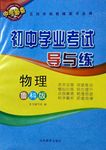Everyone has good days and bad days.
Sometimes, you feel as if you’re on top of the world. But occasionally you feel horrible, and you lose things and you cannot focus on your schoolwork.
For more than 20 years, scientists have suggested that high self-esteem (自尊) is the key to success. Now, new research shows that focusing just on building self-esteem may not be helpful. In some cases, having high self-esteem can bring bad results if it makes you less likeable or more upset when you fail at something.
“Forget about self-esteem,” says Jennifer Crocker, a psychologist (心理學(xué)家) at the University of Michigan, US. “It’s not the important thing.”
Feeling good
Crocker’s advice may sound a bit strange because it is good to feel good about yourself.
Studies show that people with high self-esteem are less likely to be depressed, anxious, shy, or lonely than those with low self-esteem.
But, after reviewing about 18,000 studies on self-esteem, Roy Baumeister, a psychologist at Florida State University, has found that building up your self-esteem will not necessarily make you a better person.
He believes that violent and wicked people often have the highest self-esteem of all. He also said: “There’s no evidence that kids with high self-esteem do better in school.”
Problems
All types of people have problems. People with high self-esteem can have big egos (自我) that can make them less likeable to their peers(同齡人), said Kathleen Vohs, a psychology professor at Columbia University.
People with high self-esteem tend to think more of themselves, Vohs says. People with low self-esteem are more likely to rely on their friends when they need help.
What to do
Researchers say it is best to listen to and support other people. Find positive ways to contribute to society. If you fail at something try to learn from the experience. “The best therapy (藥方) is to recognize your faults,” Vohs says. “It’s OK to say, ‘I’m not so good at that,’ and then move on.”
小題1:The new research comes to the conclusion that high self-esteem ________.
| A.is not important at all | B.has taken on a different meaning |
| C.may not be the key to success | D.does not help you do better at school |
小題2:One of the conclusions of the new research is that ________.
| A.feeling good about oneself doesn’t mean you lead a happier life |
| B.people with high esteem usually do not seek other’s help |
| C.people with high esteem tend to be proud |
| D.people with low esteem are often more popular |
小題3:The underlined part “a better person” in the passage probably means a person who is ________.
| A.helpful and supportive | B.gentle and modest |
| C.likable and successful | D.friendly and kind |
小題4:From the text, we can infer the best therapy mentioned in the last paragraph is mainly for people ________.
| A.with high self-esteem | B.with low self-esteem |
| C.of all kinds | D.who are focusing on building self-esteem |




